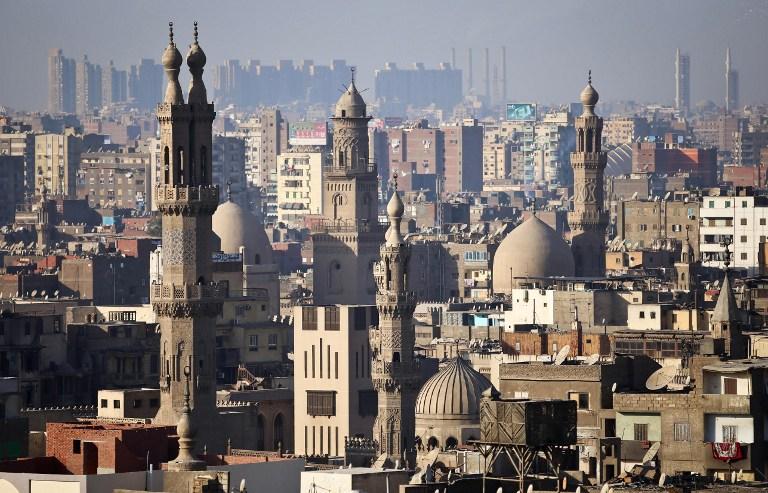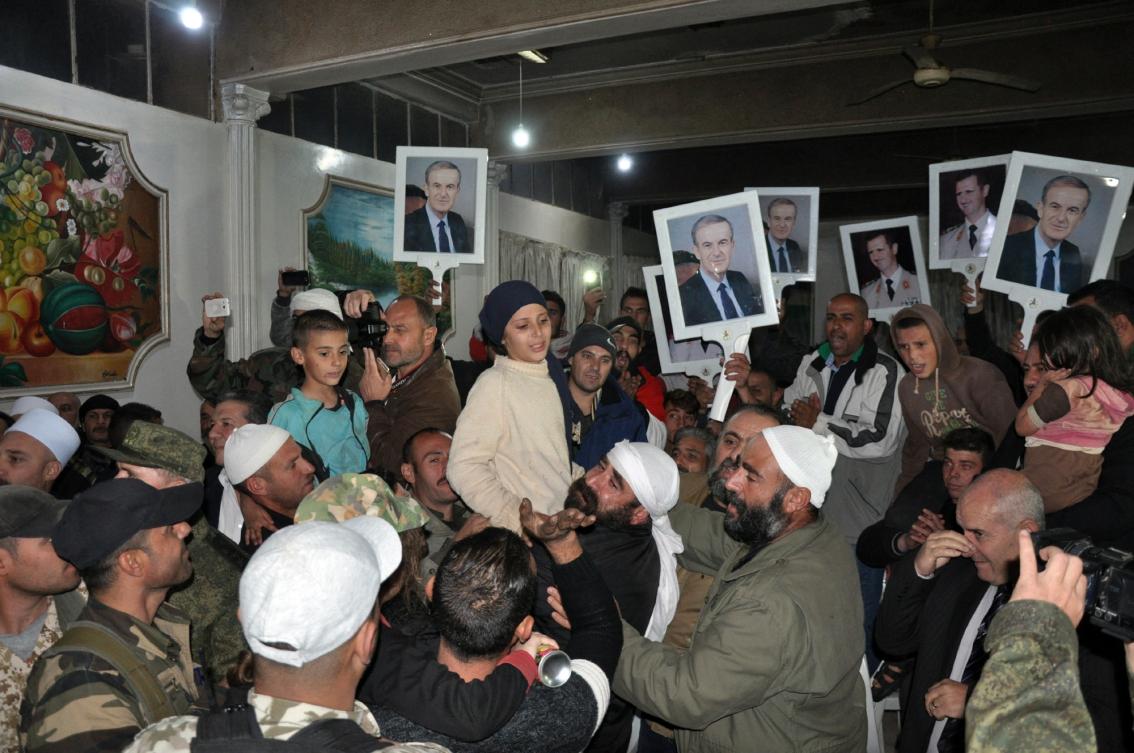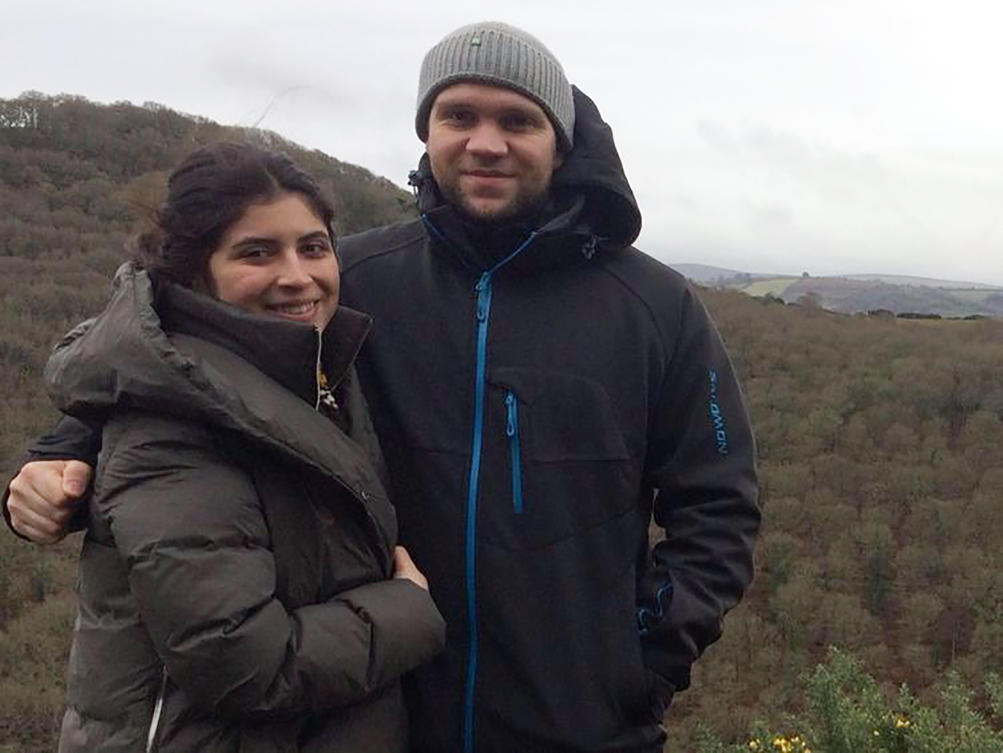Egypt offers residency to foreign investors
CAIRO: In an attempt to further boost its booming real estate sector and attract foreign investment, Egypt will grant residency permits to foreigners who invest at least $100,000 in the country’s property market.
The growth rate of Egypt’s property market stands at 133 percent in 2018. This has been fueled by strong demand for housing, along with the sporadic launch of residential construction projects.
The minimum investment required to obtain a residency permit is $100,000. A three-year residency is on offer for those who invest $200,000, and five years for those who purchase property worth $400,000. The offer also applies to properties that are still under construction.
Khaled Abbas, the deputy minister of housing, said the procedures for the scheme are being set up in consultation with the Passport, Immigration and Nationality Administration.
To begin the process for obtaining Egyptian residency, a preliminary contract must be agreed between the property owner and the foreign investor, and then signed by an authorized body, such the Urban Communities Authority, the Tourism Development Authority or the governorate in which the property is located. Bank statements must also be provided confirming that the money has been transferred from overseas. The passport office will then approve the period of residence.
Members of the House of Representatives welcomed the announcement as a positive move for Egypt and an incentive for foreign investment, which it is hoped will create jobs and economic opportunities.
Whether the public will be so keen remains to be seen.
“This might be a bit problematic,” said Aly Salem, a resident of Cairo. “The housing demand in Egypt is already high, with the surging youth population and more and more people looking to get married each year. Where will they stay, if foreigners start swooping in and acquiring both residency and a huge housing unit with just $100,000?”
Offering further details, Gen. Kamel Amer, the head of the Parliament’s Defense and National Security Committee, said foreigners will not have any political rights for the first five years of residency and they will not be eligible to vote for 10 years. He also said spouses and children of investors will not be granted residency unless they live in Egypt.
Spain and Portugal have implemented similar programs in an attempt to boost their property markets. Previously, a foreigner had to live in Egypt for 10 consecutive years to be eligible for naturalization.
The new residency law is part of the efforts to repair the damage to Egypt’s economy caused by severe austerity measures imposed after the $12 billion loan package from the International Monetary Fund in 2016.
The cost and size of properties in Egypt, which are often large and lavish apartments, compare favorably to those in many other countries. Despite this, few Egyptians can afford to pay for a house upfront, but some private property developers are offering 10-year, interest-free installment plans.

Top Egyptian travel company sees sector recovering as tourists returnWith new Egypt capital being built, what becomes of Cairo?
Israeli minister says Trump peace plan a ‘waste of time’
JERUSALEM: A senior Israeli minister said Wednesday that US President Donald Trump’s long-awaited plan for peace with the Palestinians was “a waste of time.”
“I think that the gap between the Israelis and Palestinians is much too big to be bridged,” Justice Minister Ayelet Shaked said at a conference organized by the Jerusalem Post newspaper.
“I think personally it’s a waste of time,” she said when asked what she thought about the peace initiative Trump is expected to unveil in the weeks or months ahead.
Shaked is part of the far-right Jewish Home party, a key member of Prime Minister Benjamin Netanyahu’s coalition.
She and other members of her party openly oppose a two-state solution to the Israeli-Palestinian conflict.
The Palestinians have already vowed to block Trump’s peace plan and severed ties with his administration after his December decision to move the US embassy in Israel to Jerusalem and declare the city Israel’s capital.
The Palestinians also see the city as the capital of their future state and international consensus has been that Jerusalem’s status must be negotiated between the two sides.
Trump has also cut some $500 million in aid to the Palestinians, who accuse the White House of seeking to blackmail them into accepting a plan they view as blatantly biased in favor of Israel.
Trump aide Jason Greenblatt said recently in an interview with the Times of Israel news site that the plan would “be heavily focused on Israeli security needs” while remaining “fair to the Palestinians.”
While expressing her pessimism on the chances for making peace with the Palestinians for now, Shaked however said she would keep an open mind on the US plan.
“Although I want peace like anyone else, I’m just more realistic, and I know that in the current future it is impossible,” she said, speaking in English.
“But let’s wait and see what they (the US) will offer.”

Israel steps up boycott fight after Airbnb settlement banIsrael joins US, others in rejecting UN migration pact
Syria’s Druze minority: walking a war-time tightrope
BEIRUT: Syria’s Druze minority, whose men are being called up for military service by Damascus, is struggling to insulate itself from the conflict that has engulfed the country since 2011.
Here is a summary of the community’s profile, its role in Syria’s conflict and the attacks it has faced.
The Druze community accounted for around three percent of Syria’s pre-war population of 23 million.
They are located mainly in the southern province of Sweida with smaller pockets around Damascus and in the northwest, although some have fled militant-held parts of the latter area.
Druze are monotheistic and considered Muslim, but the sect is otherwise highly secretive, includes mystical elements such as reincarnation, and does not allow new converts.
Some 200,000 Druze are located in neighboring Lebanon and over 100,000 are in Israel, while 18,000 live in the Israeli-occupied Golan.
Syria’s Druze have been split by the uprising that erupted in 2011 against President Bashar Assad, who had long portrayed himself as a protector of the country’s minorities.
Druze should not be seen “as being neutral in this war — it’s more multifaceted and the Druze are not a monolithic bloc,” said Tobias Lang, an analyst focused on Druze populations in the Middle East.
One of the first soldiers to defect from Syria’s army in protest at its handling of demonstrations was Druze officer Khaldun Zeineddine, who later died in clashes against regime forces.
Others remained firmly loyal, like General Issam Zahreddine, one of the highest-ranking Druze army officers who died last year in a mine blast after battling the Daesh group in Syria’s east.
Druze leaders have often tried to maintain a relationship with the regime to keep their areas autonomous and spare them from government attacks.
One symbol of that complex relationship was Wahid Al-Balous, a Druze religious authority who pushed for the sect’s soldiers to be deployed near their hometowns, rather than in other provinces.
Balous, who died in a car bomb attack in Sweida in 2015, spoke out against both militants and Assad.
Syria’s Druze have protected their heartland in Sweida with their own forces.
The most powerful has been the Sheikhs of Dignity, which was headed by Balous and included fighters and other religious figures.
Sheikhs of Dignity has fought fierce battles against the Daesh group and Al-Qaeda’s Syrian affiliate.
Other militias have been closely linked to the regime, including the Dareh Al-Watan (Shield of the Nation), a Druze force founded in April 2015 with 2,000 fighters.
Such groups appear to have protected Sweida’s sons from compulsory military service, with authorities turning a blind eye so long as young men fight in units not opposed to the regime.
But with the regime hungry for fresh conscripts, that deal appears to be coming apart at the seams and Assad has now called on young Druze men to serve.
His appeal came after Damascus announced the release this month of Druze women and children who had been kidnapped during a July attack by Daesh.
That onslaught by the militants left more than 260 people dead, mostly civilians. It was the worst attack against the minority so far but not the first.
A car bomb in 2012 ripped through Damascus’ Jaramana suburb, which is mostly Druze and Christian.
In 2013 and 2014, fierce fighting between Syrian rebels and pro-regime Druze forces rocked Sweida province and Druze areas closer to Damascus.
Daesh began attacking Sweida province in 2015, first targeting Khalkhalah military airport.
The same year, 20 Druze Syrians were killed in a shoot-out with Al-Qaeda militants in the village of Qalb Lawzah in northwestern Idlib province.
Druze residents of Qalb Lawzah had come out against the regime a year into Syria’s uprising.
In 2016, Daesh beheaded four laborers in an area it controlled outside Damascus, accusing them of being Druze.
And in 2017, a car bomb killed nine people in Hader, a regime-held village in the southwestern province of Quneitra mostly populated by Druze.

Assad calls on Syria’s Druze minority to do military serviceSyria army frees 19 Druze hostages from Daesh
UAE court sentences British student to life for spying
DUBAI: A United Arab Emirates court sentenced British student Matthew Hedges to life in jail on Wednesday after convicting him of spying, a family spokesperson said.
“We can confirm that he was sentenced to life in prison,” the spokesperson told AFP.
“The hearing lasted less than five minutes, and his lawyer was not present.”
British Foreign Secretary Jeremy Hunt said he was “deeply shocked and disappointed” by the decision of the UAE court.
“Today’s verdict is not what we expect from a friend and trusted partner of the United Kingdom and runs contrary to earlier assurances,” he said.
Hedges, a 31-year-old PhD student, was researching the UAE’s foreign and internal security policies after the Arab Spring revolutions of 2011 when he was detained at Dubai airport on May 5.
He was granted temporary release on October 29 but constantly monitored until Wednesday’s court hearing, only his third since his arrest.
UAE attorney general Hamad Al-Shamsi said earlier this month that Hedges was accused of “spying for a foreign country, jeopardizing the military, political and economic security of the state.”
Hedges has repeatedly denied the charges.

UK academic released on bail in United Arab EmiratesUAE to try British student on spying charges: reports